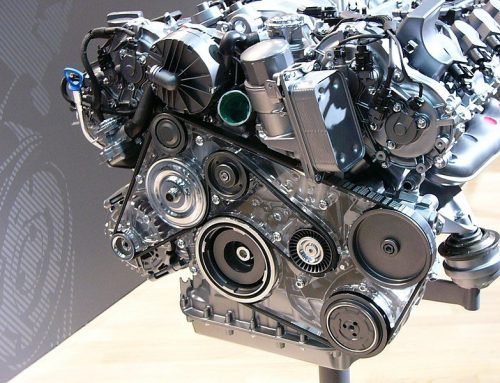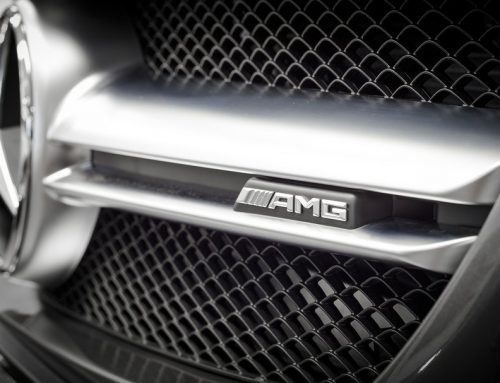Diesel v petrol: it’s one of the longest-running debates among revheads the world over. You’ll find no shortage of people supporting one or the other, repeating the same old points over and over.
One point against diesel that you’ll hear often – especially among the older crowd – is its habit of billowing out clouds of smoke.
Of course, this particular issue hasn’t been true for years at this point – and it’s all thanks to systems like your DPF system.
While diesel might not be as popular down under as it is in Europe, there’s no shortage of diesel-powered Mercedes-Benz vehicles on Australian roads.
Found exclusively in these vehicles, Diesel Particulate Filtering (DPF for short) plays a crucial role in ensuring that your diesel engine is performing with minimal emissions, eliminating the smoke that’s stereotypically associated with diesel.
What happens if this system runs into problems?
Will your next Mercedes-Benz service in Melbourne cover it?
And what is DPF regeneration, anyway?
Our Mercedes-Benz mechanics in Melbourne explain Diesel Particulate Filtering
Filters are designed to trap something – no prizes for guessing what your DPF system is designed to filter.
Ever wondered why today’s diesels don’t generate anywhere near the same amount of smoke or soot that older diesels used to? Your DPF system is part of the reason why!
Instead of coming out of your exhaust, your DPF system captures soot before it leaves the exhaust, reducing visible emissions to an almost invisible level.
And just like any other filter, your DPF filter eventually fills up, and if it wasn’t unblocked soot and other particulates that it filters out over the months. This will throw up an engine fault code – in extreme cases however, Mercedes DPF problems can even:
- Put your vehicle into limp mode
- Reduce your speed and acceleration
- Decrease fuel efficiency
In some cases, the fallout can spread to your turbocharger. A clogged filter affects the flow of exhaust gas throughout your engine – something that most turbochargers rely on to operate.

DPF regeneration, explained
You’d think that your Mercedes DPF would be a regular service item, what, with the amount of soot that no doubt builds up over the months.
So why have you never seen DPF service listed on the quote for your Mercedes-Benz service?
The answer’s simple: most of today’s DPF systems are self-cleaning!
Don’t let the fancy-sounding name fool you – DPF regeneration simply refers to the process of cleaning and emptying your filters.
Once your Mercedes-Benz detects that soot loading has built up to the point where it needs to perform a regeneration, the ECU injects a small amount of raw fuel into the engine after the main combustion cycle, raising the temperature of exhaust gases.
And that in turn heats up the DPF system (sometimes up to 600C) where soot burns up and is pushed out.
Could your Mercedes DPF problems be caused by an incomplete regeneration process?
It’s entirely possible!
While it varies depending on the model, most Mercedes-Benz vehicles DPF regeneration only kicks in when your engine is operating at around 2,000RPM and you’re travelling at 60km/h or more.
If your driving habits don’t see you reaching the speeds or RPM needed to perform a regeneration – or if you only take short, stop-start journeys that interrupt the process – there’s a high chance your Mercedes DPF won’t fully regenerate when it needs to.
We’ve mentioned before that short, stop-start journeys are bad for your engine. While we focused on how this style of driving affects your engine oil, your DPF system may also be a victim.
In these cases, you may have to call your mechanic and ask them whether or not you need to include a DPF regeneration as part of your next Mercedes-Benz service.

Can I force a DPF regeneration on my own?
Yes… however, we don’t recommend it!
One of the reasons for this is that to trigger this process, you need to give the prompt to your Mercedes ECU. For that, you need a specialised computer tool to force your engine to start the process.
It isn’t just that, however – a forced regeneration can get dirty, and often needs to be followed up with an oil filter and oil change.
Sure, you can do both of these things on your own – however, it’s a considerable amount of work. What’s more, a DPF regeneration gone wrong can itself lead to a range of Mercedes DPF problems.
So you’ve just gotten the error code “Mercedes Diesel Particulate Filter The soot content of the particulate filter is too high for regeneration”. That doesn’t mean that the DPF needs to be replaced – it just means it needs to be “flushed”.
Instead of attempting DIY, we recommend bringing it up with a Mercedes-Benz mechanic in Melbourne when your next service rolls around.
It isn’t just incomplete regeneration that can cause Mercedes DPF problems – the causes of Mercedes Sprinter DPF problems and Mercedes Vito DPF problems
While most people know Mercedes-Benz for its premium passenger vehicles, they also make some of the most trustworthy and reliable commercial vehicles on the market as well.
And unlike your daily driver, diesel is considerably more popular when it comes to commercial vehicles.
You’ll find Sprinters and Vitos working in delivery fleets all over Australia. With the amount of driving these vehicles tend to do on a given day, you’d think that Mercedes DPF problems wouldn’t appear at all in these models.
While these models tend to get more than enough miles to keep their DPF filters clean, that doesn’t mean that they’re free of Mercedes DPF problems.
Luckily, the vast majority of the time you won’t need to add a DPF replacement to your next Mercedes-Benz service. Address the root issue, and you should see your Mercedes DPF problems disappear…
Using high ash oil
Engine oil is an important part of your engine – what’s more, it’s also one that many motorists overlook, choosing to go with the cheapest option they can find in the shop.
Mercedes-Benz engines are picky when it comes to the oil they’ll accept. Diesels in particular are specifically designed with low-ash oil in mind.
Needless to say, using oil with high ash content in particular can lead to DPF problems, as the higher ash content results in your DPF system getting clogged much sooner.
DPF exhaust pressure sensor
Your Mercedes-Benz ECU triggers the regeneration process when it detects that buildup in the DPF is restricting exhaust flow.
Key to this is the exhaust pressure sensor.
Like any other sensor, this can fail, causing ash, soot and particles to continue building up long past a safe level.
If this sensor stops operating, your vehicle will enter limp mode just to be safe and trigger a “check engine” light. You should take this as a sign to push forward your next Mercedes-Benz service!
EGR issues
EGR (Exhaust Gas Recirculation) systems are an emissions-reduction feature found in many engines designed to minimise the amount of NOx coming out of your exhaust.
A clogged EGR impacts its ability to circulate exhaust. This in turn impacts engine function, which in turn leads to inefficient diesel consumption, which in turn leads to more particle production.
And that in turn may lead to your DPF system prematurely clogging up, causing Mercedes Sprinter or Vito DPF problems.
Time for your next Mercedes-Benz service in Melbourne?
Start the drive towards better value today
A new DPF system is expensive, not to mention time-consuming to install. Mercedes-Benz service from the dealership is expensive enough as it is – toss on the cost of a new DPF system (itself thousands of dollars) and you have a painfully large bill.
Luckily, the vast majority of DPF problems can be solved without resorting to this expensive step.
Of course, that hasn’t stopped dealerships from trying to upcharge you anyway – no wonder so many Mercedes-Benz owners are moving away from dealership service!
That leaves independent mechanics.
When it comes to independent Mercedes-Benz service in Melbourne, you can’t go past Ammstar.
We know how costly it can be to keep up with dealership service costs – that’s what drove us to open our doors 20 years ago with the mission of giving you better value than the dealership.
And that’s something we’ve been delivering on ever since!
We’re experts on all things Mercedes – unlike generalist mechanics, our team is made up exclusively of European car fanatics.
Our independence from the dealership network allows us to:
- Be flexible with what service you receive
- Seek out better value alternatives for parts and components
- Use our own, more efficient processes and systems
- A lower Mercedes-Benz service cost
And that means better value for you!
Start the drive towards a better value service today – get in touch with Ammstar’s Mercedes-Benz mechanics in Melbourne today:
Alternatively, click here to book online!



